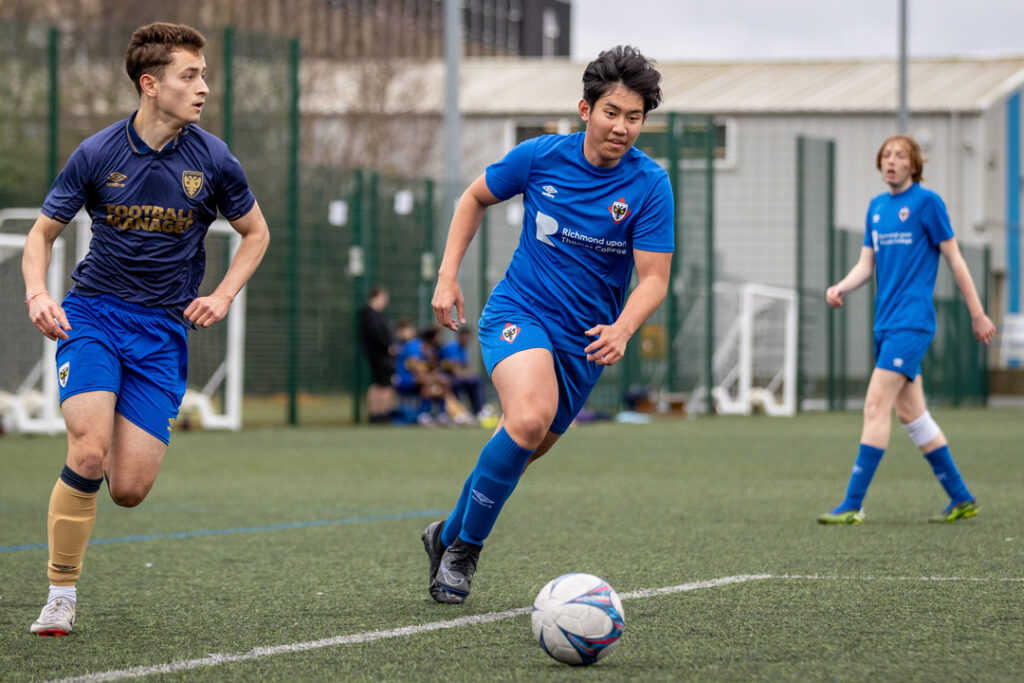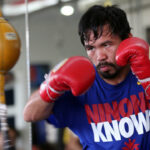Many football fans instantly picture the major league teams with expansive stadiums and elite players. But there’s a tale of commitment, toil, and the sometimes disregarded contribution of junior academies that lies behind every great football player. The AFC Wimbledon Academy is one such academy that is subtly but significantly changing the football landscape.
AFC Wimbledon Academy’s Beginnings
We must first examine the past of AFC Wimbledon, the club’s parent organization, in order to fully comprehend AFC Wimbledon Academy. The club’s tale is one of tenacity and willpower. There was heartbreak among many Wimbledon FC supporters when the team moved to Milton Keynes in 2002. In an effort to preserve the history of their club, they founded AFC Wimbledon the same year. The team began at the bottom of the English football pyramid and went on a mission to go up the ladder and finally into the Football League.
Shortly after the club’s founding in 2003, AFC Wimbledon made the decision to establish an academy as an investment in its future. The concept was straightforward: develop youthful players who may eventually play for the senior squad in order to establish a solid foundation. The goal of the academy has always been to give aspiring athletes the greatest environment available to advance their abilities on and off the pitch.
Location and Facilities.
South West London is home to the AFC Wimbledon Academy, a top location for identifying and nurturing young potential. The primary training site for the academy is at King’s College Sports site in New Malden, however it operates out of other locations. Modern training fields, a fitness centre, and player classrooms are all features of this facility.
To guarantee that these facilities are of the greatest calibre, the club has made ongoing investments in them. Good training sessions may take place on the well-maintained pitches in any weather. Players may work on their fitness, watch match film, and attend instructional seminars in the indoor facilities.
The Parent Club Connection
An important part of the academy’s functioning is the senior team of AFC Wimbledon. The first team and the academy have a tight association that guarantees young players a direct route to the professional game. This relationship also implies that the philosophy and style of play of the club have a direct impact on the academy.
The coaches of the senior squad communicate with the academy personnel on a regular basis to discuss possible future stars. Because of this collaborative approach, players are completely prepared for the demands of playing for the first team when they are ready to step up. Academy players also frequently have the chance to train with the senior team, which provides them with invaluable experience and an understanding of what it takes to be successful in the professional ranks.
The Training Process At the AFC Wimbledon Academy
At the AFC Wimbledon Academy, training focusses on more than simply technical proficiency. The program places a strong emphasis on each player’s overall development, making sure they improve both as people and as athletes. The training regimen is made to accommodate a range of age groups, with distinct objectives and approaches for every phase of a player’s growth.
- The Foundation Phase (Ages 9–11): The goal at this point is to become proficient in the fundamentals and cultivate a passion for the game. On the pitch, players are encouraged to express themselves creatively. Young athletes will have a great time at the academy because of the exciting and interesting training sessions.
- The Youth Development Phase (Ages 12–16): Players advance, and the training gets more regimented. The importance of tactical awareness and game comprehension is higher. In order to aid in their physical development, players are also introduced to strength and conditioning regimens. This stage is essential because it gets athletes ready for the demands of playing football professionally.
- Professional Development Phase (Age 17–21): Players are just about ready to break into the starting lineup at this point. Training is rigorous, just like it is for the senior squad. In order to thrive in the professional game of football, players focus on honing their talents, building their physical traits, and strengthening their mental toughness.
Apart from providing on-field instruction, the school prioritises education. The necessity of leading a balanced lifestyle, sports psychology, and nutrition are among the topics covered in the regular sessions that players attend. In order to make sure that athletes don’t ignore their academics, the academy also maintains tight ties with neighbourhood schools.
The Scouting and Recruitment Process
The capacity of an academy to find and identify talented athletes is a major factor in determining its success. AFC Wimbledon Academy has a committed group of scouts that put in a lot of effort to find talented young people in the neighbourhood and beyond.
The recruitment procedure is extensive and has several steps. Scouts first go to local games and competitions to find possible players. Upon identification, a player receives an invitation to participate in an academy trial. The coaching team can evaluate the player’s technical skill, physical characteristics, and attitude during these trials.
A player receives an offer to join the academy if they demonstrate their abilities during the trial. But the adventure doesn’t stop there. The academy keeps a close eye on the players’ development to make sure they are meeting the standards set by the organisation. Players undergo performance evaluations on a regular basis.
Additionally, the program enjoys a solid rapport with neighbourhood grassroots teams. AFC Wimbledon Academy is able to take advantage of the abundance of talent in the region thanks to this cooperation. The club gives young players a taste of what it’s like to practice in a professional academy by holding regular coaching sessions at these grassroots teams.
For more information about scouting and recruitment, please click here.
Success Stories and Accomplishments
AFC Wimbledon Academy has produced a good number of quality players, even though it is a smaller academy than some of the Premier League’s biggest teams. A number of academy graduates have progressed to the first team, and a few have even established themselves at higher levels.
Will Nightingale is among the most well-known success stories from the institution. Will enrolled in the academy at an early age and rose through the ranks quickly. When he made his first team debut in 2014, it was evident that his diligence and commitment had paid off. He has now grown to be an important member of the team and an inspiration to the younger academy players.
Paul Kalambayi‘s tale is another one of triumph. Paul, like Will, enrolled in the academy at an early age and made an impression. Since making his first-team debut in 2018, he has been a regular member of the team. Paul’s progression from the academy to the first squad is evidence of the high calibre of instruction and growth offered by AFC Wimbledon Academy.
Apart from individual triumphs, the academy has also seen collective achievement. The different age groups participate in regional and national competitions on a regular basis, frequently with remarkable outcomes. These accomplishments are a direct result of the players’ and coaches’ tireless efforts.
Enhancing the Player’s Journey
One of the primary areas of attention for the future is to develop the player process from the academy to the first team. The club is keen to capitalise on the significant progress the academy has already made in moving youngsters up to the main team.
The academy is working to increase the opportunities that young players have to experience playing on the first team in order to accomplish this. This entails planning additional competitions and friendly games where academy players may face off against more experienced squads. For novice players, these are priceless opportunities to test their skills against more seasoned opponents and build self-confidence.
The organisation is additionally looking at methods to include academy players into the first team environment at an even younger stage of their development. More collaborative training sessions where academy players may pick the brains of seasoned pros could be part of this. The academy aims to better prepare young players for the move to the first team by exposing them to the rigours of professional football early on.
The AFC Wimbledon Academy’s Future
The AFC Wimbledon Academy has a promising future. The club is determined to keep funding the academy and has ambitions to upgrade its infrastructure and broaden its network of scouts. Making sure the academy stays one of the best places in the area for future potential is the aim.
In the upcoming years, the team hopes to relocate to a new training facility. The academy will be able to compete with some of the larger teams in the nation thanks to the even superior resources this building will bring. It will also be able to house more kids thanks to the expanded facilities, which will allow even more young football players to further their skill development.
The academy will keep concentrating on developing players who are well-rounded and prepared for the demands of playing professional football. The focus will continue to be on players’ technical and personal growth, making sure they graduate from the academy not just as better football players but also as better individuals.
Conclusion
The AFC Wimbledon Academy may not have as many resources as some of the larger academies in the nation, but it more than makes up for its modest size with heart and commitment. The academy is a unique venue for any young football player because of its dedication to nurturing new talent, tight relationship with the senior squad, and strong links to the local community.
More:
Most Watched Sports Around The World













